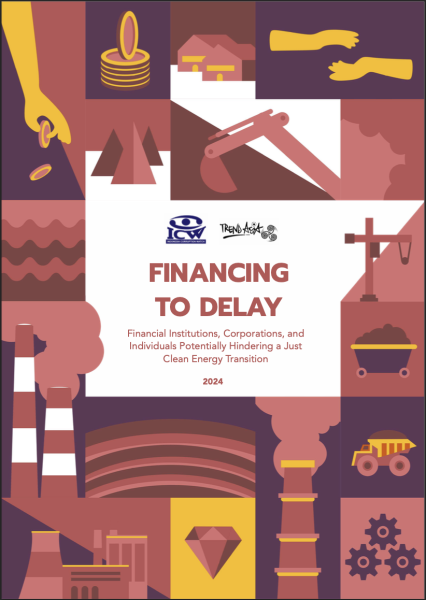Financing to Delay

The reason why the coal industry in Indonesia can continue to grow despite often receiving massive rejection because its impact on the climate crisis must be linked to the contribution of financial institutions such as banks. One form of this contribution, for example, is through the substantial amount of financing they provide every year. The forms of funding vary, ranging from direct credit, underwriting, and buying bonds issued by coal companies. Of course, the flow of funds from various financial institutions such as banks to the dirty energy business portfolio also makes complicit to the climate crisis. Moreover, this financial support contradicts the "green commitment" of each bank and has the potential to make these commitments merely greenwashing. Furthermore, the massive financing of the coal industry in Indonesia at a time when the world community has long been pushing for the abandonment of dirty energy sources can be interpreted as an obstacle to the clean energy transition. Any attempt to delay serious actions in the energy transition (which by nature need to be done immediately) can be categorized as a form of “climate delay” or “climate delayism.”
To further understand why climate delayism is still prevalent in Indonesia, it is important to use a political economy lens and consider the context of Indonesian democracy which is thick with patronage because it is controlled by a handful of elites or predatory oligarchs (generally from extractive industries such as coal). Thus, it is necessary to map the actors who are most likely suspected of having an interest in maintaining Indonesia's dependence on coal because they have been connected to and benefited from the industry.
Based on the background above, Indonesia Corruption Watch (ICW) together with Trend Asia compiled this report entitled: “Financing to Delay: Financial Institutions, Corporations, and Individuals Potentially Hindering a Just Clean Energy Transition.”
The full document can be downloaded by clicking on the attachment below










